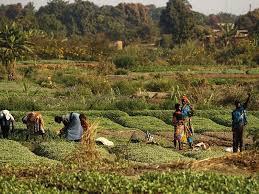
THE fact that agroecology and other sustainable food production practices are gaining ground against industrial agricultural practices is no longer debatable. However, there is still a lot of work to be done to make agroecology products more consumer-centric.
That means proponents of agroecology and sustainable consumption have to re-invent creative ways of promoting agroecology products without using scientific nutrition-driven terminologies like carbohydrates, proteins and balanced diet that are not palatable to the majority of consumers who struggle to make sense of the science within food.
The power of bringing science to the grassroots and indigenous food
Many African communities know their food is nutritious but may not express it in the language of balanced diet or any other nutrition terms.
To close this knowledge gap, academics and scientists should help communities package already existing food so that nutrition can be appropriately used as one of the unique selling propositions for agroecologically-produced food.
While science should be used to promote indigenous fruits and indigenous vegetables, the fact that science is missing in most indigenous food presents some critical challenges. For instance, how much baobab fruit would a consumer take to be equivalent to the same amount of exotic fruit like an orange? Given that most indigenous vegetables and fruits tend to be available seasonally, where do consumers get nutritional benefits to substitute what is missed when those vegetables and fruits are out of season?
Communities as consumers
Besides producing food for distant markets, agroecology producers are also consumers. Otherwise, it becomes difficult for them to market the benefits of what they do not consume. This is where packaging community food baskets in terms diets and identity becomes critical. Instead of just producing commodities for exhibiting at food festivals, communities should be capacitated to ensure their food baskets sustain them economically. For instance, if a community has more than 40 kinds of indigenous food produced agroecologically or sustainably, a collective decision should be arrived at in terms of how many foods can become sources of income. Maybe it makes practical sense to select three or four commodities that can be used as economic drivers especially where indigenous food is dominant. This is partly because it takes years to develop external markets for traditionally-rooted indigenous food. The fact that some indigenous foods have no big market outside their natural micro climates is another way in which these foods are naturally protected against over-exploitation.
- Open letter to President Mnangagwa
- Feature: ‘It’s worse right now than under Mugabe’: Sikhala pays the price of opposition in solitary cell
- Masvingo turns down fire tender deal
- Human-wildlife conflict drive African wild dogs to extinction
Keep Reading
Organic food as the face of agroecology
While many consumers may struggle to differentiate products produced agroecologically from those produced using industrial agricultural practices, organic food is fast gaining acceptance among many consumers who see organic food as a clear example of agroecologically-produced food. That is why advocates of agroecology should not confuse these consumers by bringing sophisticated definitions of agroecology as having several dimensions. Most consumers just want food and are not interested in all the aspects. It is the same way people just want to drive a car without being overloaded with too much information such as the number of parts in an engine and how coolant works in the car engine. When consumers get into a shop to buy food, very few want to know how the final product was arrived at as well as all the invisible knowledge processes that are sometimes captured on labels.
When organic production is understood as central to agroecology, it becomes easy for communities to recognise, support and protect indigenous resources in line with local identity, resilience, sustainability and independence. The fact that most African countries still depend on external inputs shows the extent to which they are still colonised and how their food systems remain fragile. Using industrial inputs and products makes it difficult for African countries to adequately value their natural resources like soil, water and natural climates. Thankfully, the agroecology movement is exposing opportunity costs of using industrial products to undermine local micro climates. Agroecology is also revealing benefits of combining the natural ecology with sustainable production.
How many farmers want to become soil scientists?
While it is important for farmers to understand their soils, there is a limit to which they should be converted into soil scientists. Farmers should just have enough knowledge about their soils to be able to produce in a sustainable manner like they have been doing for generations. Irrespective of level of academic education, most African farmers are well aware of different soil characteristics without the need for them to know the science behind differing fertility. Interacting with African farming communities as part of the agroecology movement has revealed different names for soil in local languages.
In most cases, those local names correspond to different soil characteristics. Farmers’ use of ant and termite mound soil as an amendment shows that they understand cause and effect — if not the science within different soils. They do not really need to be bombarded with scientific terms like soil pH, soil acidity and alkalinity whose meanings may not be translatable to local culture and diverse vernacular languages. Local institution should be set up at community level to deal with the community’s collective soil fertility management including indigenous knowledge.
- Charles Dhewa is a proactive knowledge broker and management specialist







